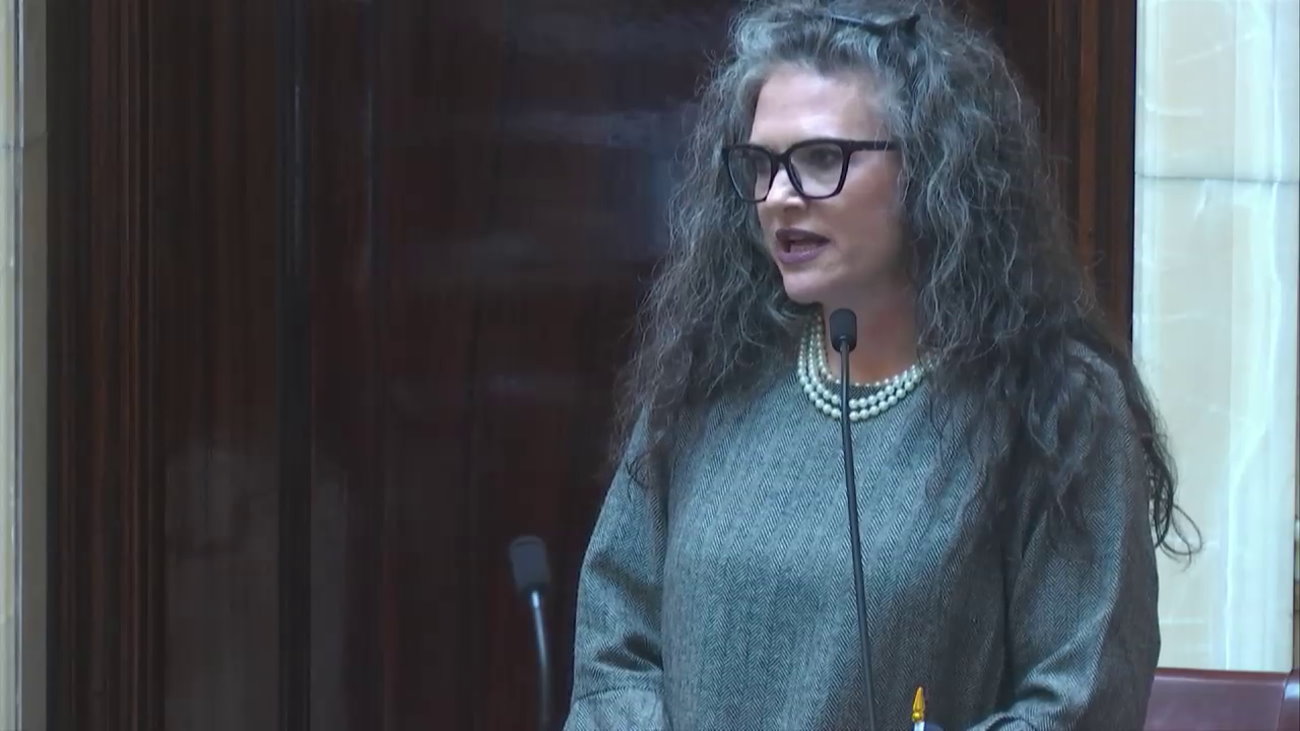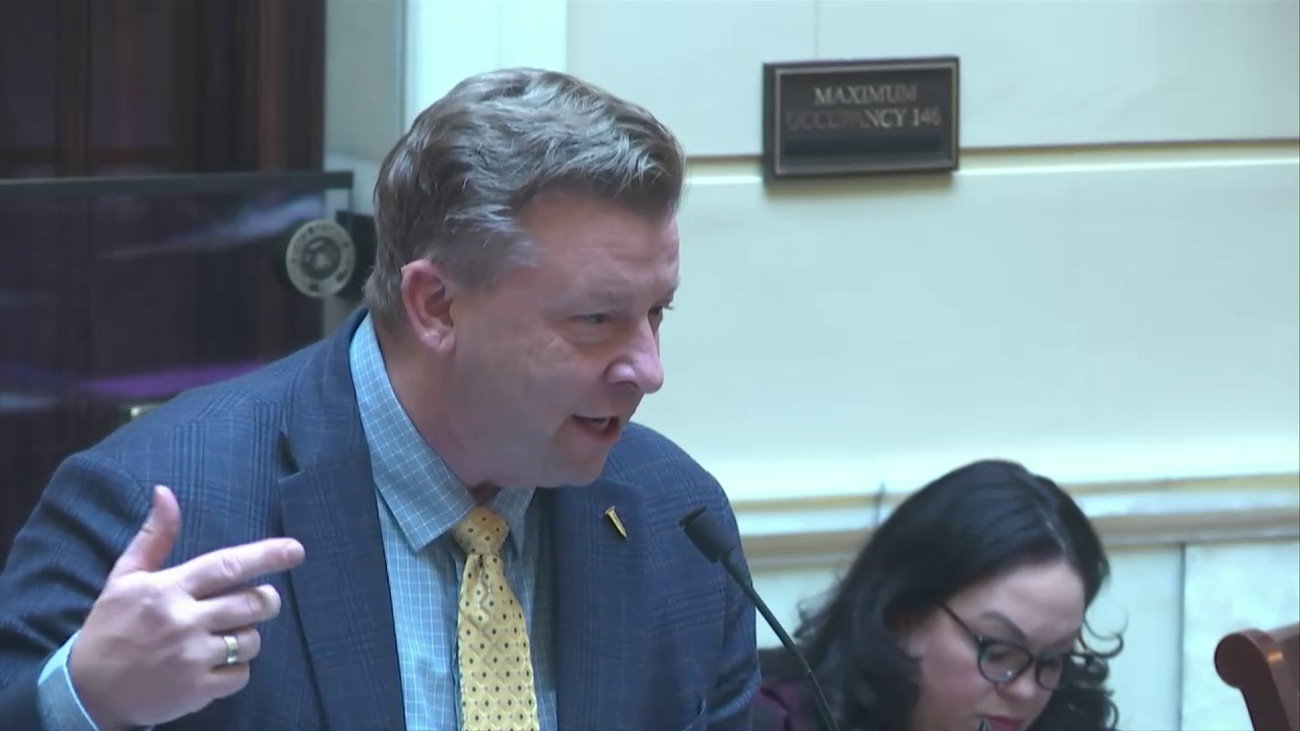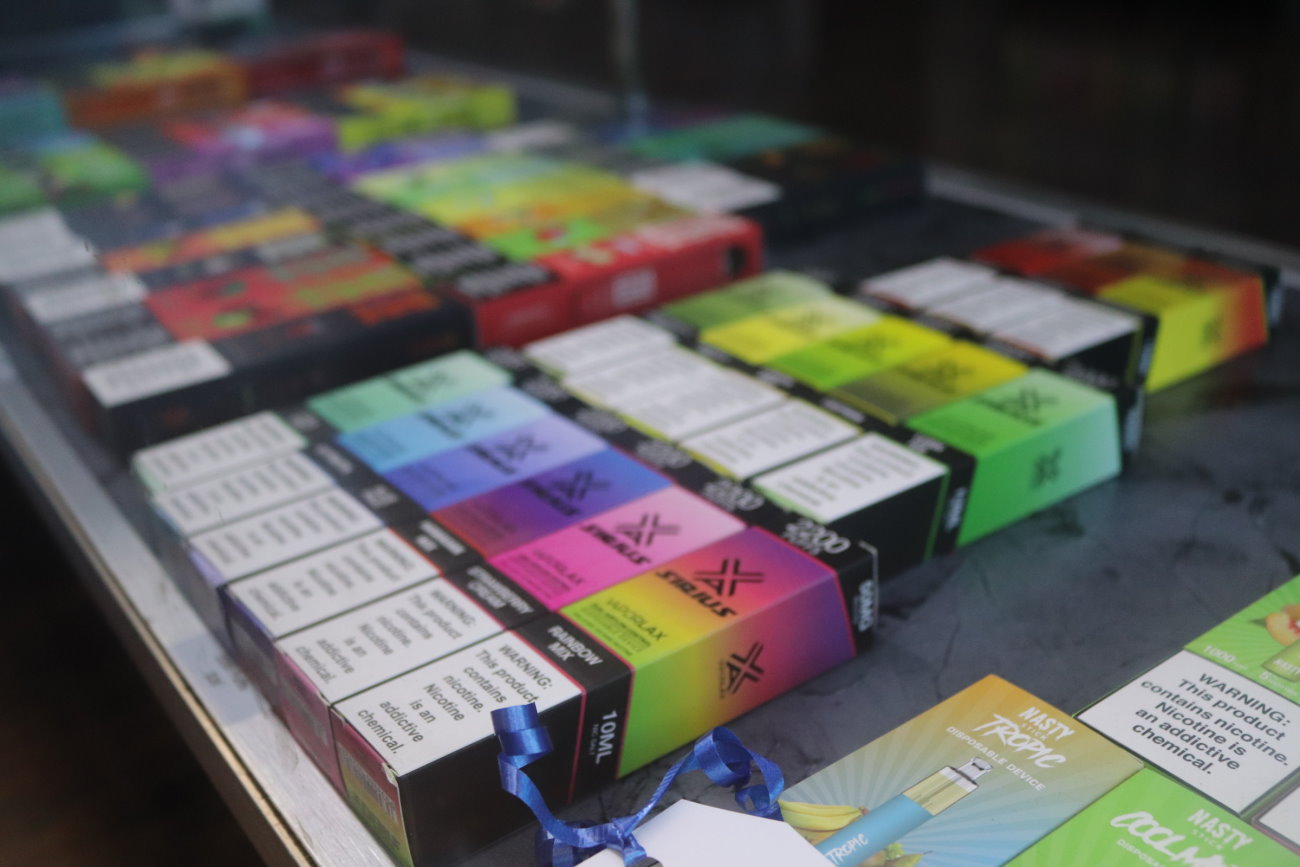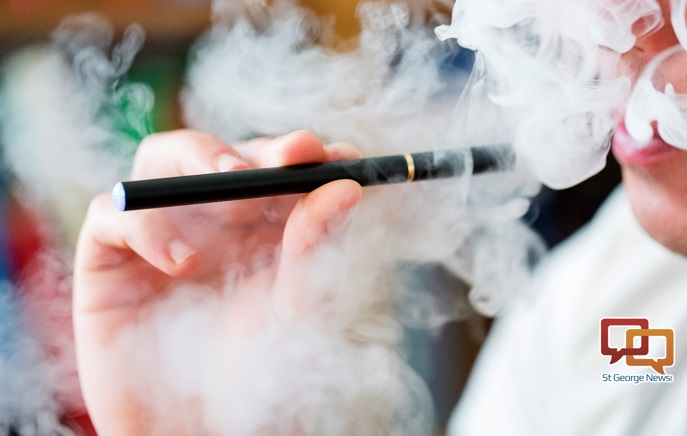
ST. GEORGE — A bill that would ban the majority of flavored electronic cigarette products in the state has opponents worried it will “annihilate” the vape industry in Utah if passed. Supporters argue the ban will help curb the spread of nicotine addiction in youth.

SB 61, the electronic cigarette amendments bill, is authored by Democrat state Sen. Jen Plumb of Salt Lake City. Plumb is a pediatrician and emergency medical physician who specializes in toxicology and helps patients overcome addiction. She has repeatedly commented on how addictive nicotine can be for people and how she has seen former heroin addicts unable to beat their nicotine habits.
Unlike previous bills focused on vape use that targeted the amount of nicotine found in vape products, Plumb’s will ban flavored vape products in Utah as she sees that as the primary reason youth start and get addicted to vaping.
“What I really want to stop is the pipeline of feeding our kids into that space where people are dependent on nicotine,” Plumb said on the Senate floor last week. “Data out of the (Centers for Disease Control and Prevention) shows that flavors really are the pathway into nicotine products.”
Exempted from the proposed ban are menthol, mint and tobacco-flavored vape products.
Other facets of Plumb’s bill include the banning of vape products that haven’t received market authorization from the Food and Drug Administration, as well as the creation of a registry listing what vape products are sold in the state.
The Senate passed Plumb’s bill in a 20-3 vote on Feb. 13.

Among the few who voted against the bill in the Senate was Republican Sen. Todd Weiler who called SB 61 an “anti-business bill” and proposed a substitute that focused on recommendations made by the Utah Vape Business Association that also left the flavored products alone.
Among those proposals were tighter identification standards and technologies mandated for retail tobacco specialty stores, surveillance cameras at the point of entry and point of sale in those stores, putting RFID tags on products so they can be tracked back to the store that originally sold them, as well as bumping the $20 business license fee and annual renewal fee to $10,000.
Juan Bravo, president of the Utah Vapor Business Association, told St. George News those proposals would help curtail the real issue – kids obtaining vapes through adults who buy the products from them.
“It seems that the biggest issue that we’re seeing right now — as far as youth use — is acquiring product by way of straw man sales or getting an older individual to go in and buy the product for the youth or for the minor,” Bravo said.
Plumb said she liked the suggested security measures but was unwilling to adopt them in a bill if it meant the shops were able to keep flavored products.

There are approximately 300 specialty tobacco shops in Utah, and Weiler said SB 61 “will put some or most out of business. This is an anti-business bill.”
Weiler said adults like flavors as much as kids do and that vape products are meant for adults. He said he was told by industry representatives that flavored products are among their top sellers.
“If we’re going to ban in Utah anything that teenagers like, then alcohol is next, wine is next, and the thing is adults like some of the things that kids like,” Weiler said.
Touching on shops only being able to sell vape products approved by the FDA, Weiler noted medical cannabis still wasn’t approved by that agency, and yet the Legislature sanctions it and allows the sale of it in the state.
Weiler’s substitute bill was ultimately shot down with Plumb’s being passed by the Senate.
As for the businesses impacted by SB 61 should it pass, Plumb said they can adjust how they do business to remain profitable.
“Unfortunately, I do think there are businesses who are going to have to look to change their models if we take flavors out,” she said to the Senate. “My hope is that this industry can find a way to continue with what they do and not feel like this was trying to put them out of business.”

Brendon Gunn, owner of Cloud 9 Vapor in Washington City, told St. George News he believes Plumb’s bill stands to put himself and many others in Utah out of business.
“It would completely annihilate the vape industry,” he said, adding that he was among others who see Plumb and other legislators as using children as a centerpiece for their arguments. “It’s our belief that they’re using children to do Big Tobacco’s dirty work.”
Since its introduction, vaping has been marketed as a way to either decrease or quit cigarette smoking due to its lower nicotine content. However, as it is still a nicotine-based product, it continues to draw the attention and ire of health advocates and agencies – especially when it comes to youth use.
According to results from Utah’s Student Health and Risk Prevention survey – an annual survey that asks a range of behavioral and health questions with answers that can be provided anonymously – Plumb said there are an estimated 70,000 youth in the state who have been exposed to nicotine through e-cigarette use.
While vape use among minors will continue to be a concern for health advocates, legislators and impacted retailers, overall youth use has dipped in recent years.
Nationally, youth vape use dropped from 14.1% to 10% between 2022 and 2023, according to the CDC. In Utah, youth vape use dropped from 12.4% to 7.4% between 2019 and 2023, according to the Utah Department of Health and Human Services.

“Youth use has been on a very sharp decline, and (the Legislature is) still attempting stuff like this,” Bravo said. “They’re still trying to legislate adult smokers into doing what the state thinks is best.”
After passing the Senate, SB 61 was heard in the House Health and Human Services Committee on Tuesday afternoon where it passed with a 9-1 vote. It now proceeds to the House floor.
“We know prohibition doesn’t work,” Bravo said during Tuesday’s committee hearing. “This bill is a win for Big Tobacco.”
Should SB 61 become law, Bravo told St. George News that the Utah Vape Business Association is ready to sue the state over it.
“It would be our preference that it doesn’t come down to that,” Bravo said. “But we are prepared to seek legal remedies if that’s what it comes down to.”
Check out all of St. George News’ coverage of the 2024 Utah Legislature by clicking here.
Copyright St. George News, SaintGeorgeUtah.com LLC, 2024, all rights reserved.